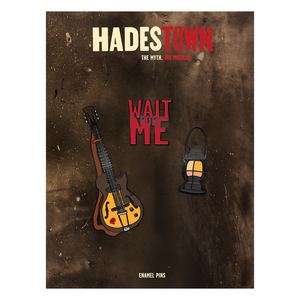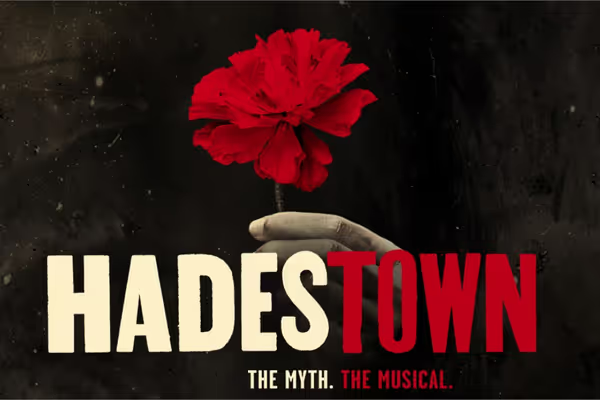Interview: HADESTOWN's J. Antonio Rodriguez Receives DACA Renewal
Rodriguez will return to the Hadestown tour on Tuesday, April 16.
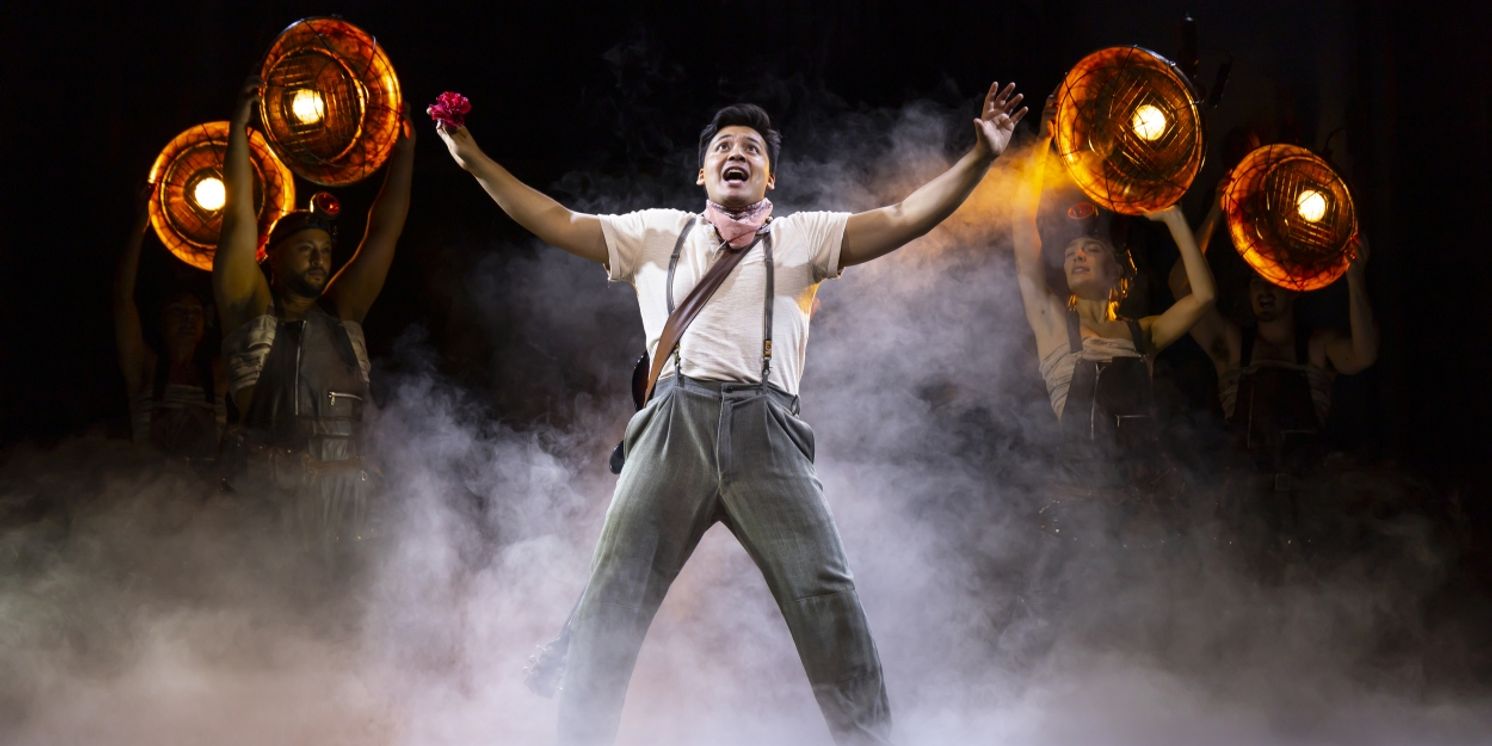
BroadwayWorld has learned that J. Antonio Rogriguez, who was playing Orpheus on the Hadestown tour before having to step away from the production following the expiration of his DACA renewal, will now be able to return to the production.
The actor shared with BroadwayWorld that he has finally received his approved renewal which will allow him to continue working in the United States. The actor played his last performance on March 13th, before stepping away from the production, though he continued to travel with the show in anticipation of good news with support from the producers.
Before Rodriguez received word of the renewal, BroadwayWorld spoke with him about his experiences as an undocumented performer in the industry. This interview has been edited for length and clarity.
Can you share what it was like growing up in Oklahoma as a Dreamer, and how your undocumented status shaped your childhood and adolescence?
Growing up in Oklahoma you would think it would be conservative. Super conservative, and super scary, but to be completely honest - in my small town of Ardmore, Oklahoma I didn't really feel that way for a very long time. Mostly because there was a community theater in town called The Brass Ring, a performing art studio and it just goes hand in hand me being a dreamer and me being a person in theater.
I felt at home there all the time. [Those who ran the studio] really took me into their family since I was nine years old, and I always felt safe. I always felt protected. Even before knowing that I was undocumented, and so having that shield was really helpful growing up.
When I found out that I was undocumented, mentally I grew up a little faster than most. I really understood how [cruel] the world could be... from such a young age. I knew the injustices and how unfair it could be. And I started to become kind of curmudgeon to be quite honest. It was weird. It wasn't like in a mean way. I became a realist really quickly.
.jpg?format=auto&width=1400)
As a valedictorian and a college graduate, what was your experience like navigating the educational system in the U.S.?
I started school when I was four years old and didn't really speak English at all. Everything I knew, I learned from Sunday school and what I could pick up from PBS kids like Arthur and Reading Rainbow. It was really hard for me. I remember, even from a young age, feeling the language barrier made you feel like you don't belong. As a kid, I wanted to fit in so badly that I would go home every day and practice English, speaking it as much as possible, even if no one understood what I was saying.
That was my first experience in school. But then, after that, I loved the feeling of just excelling. So, I learned how to read at the age of five and really pushed myself to excel in that area, all because I couldn't fit in on that first day of preschool. As I got older and learned about my undocumented status, the reality became clear to me that going to college was going to be a slim chance. This was before DACA was even a thing. But my parents thankfully pushed me to keep going and soar higher in the hopes that something would turn around, and thankfully, it did. DACA was made a thing by President Obama.
But it was hard. It's hard like it is now. It's hard to work for something and not know if it will turn out, if what you're working for is going to end up being worth it, if it's even going to be a real thing. And so, I felt that way, even as I was a valedictorian, even after I graduated college. Being a dreamer is just that. You're dreaming, hoping, but not knowing that it will get better.
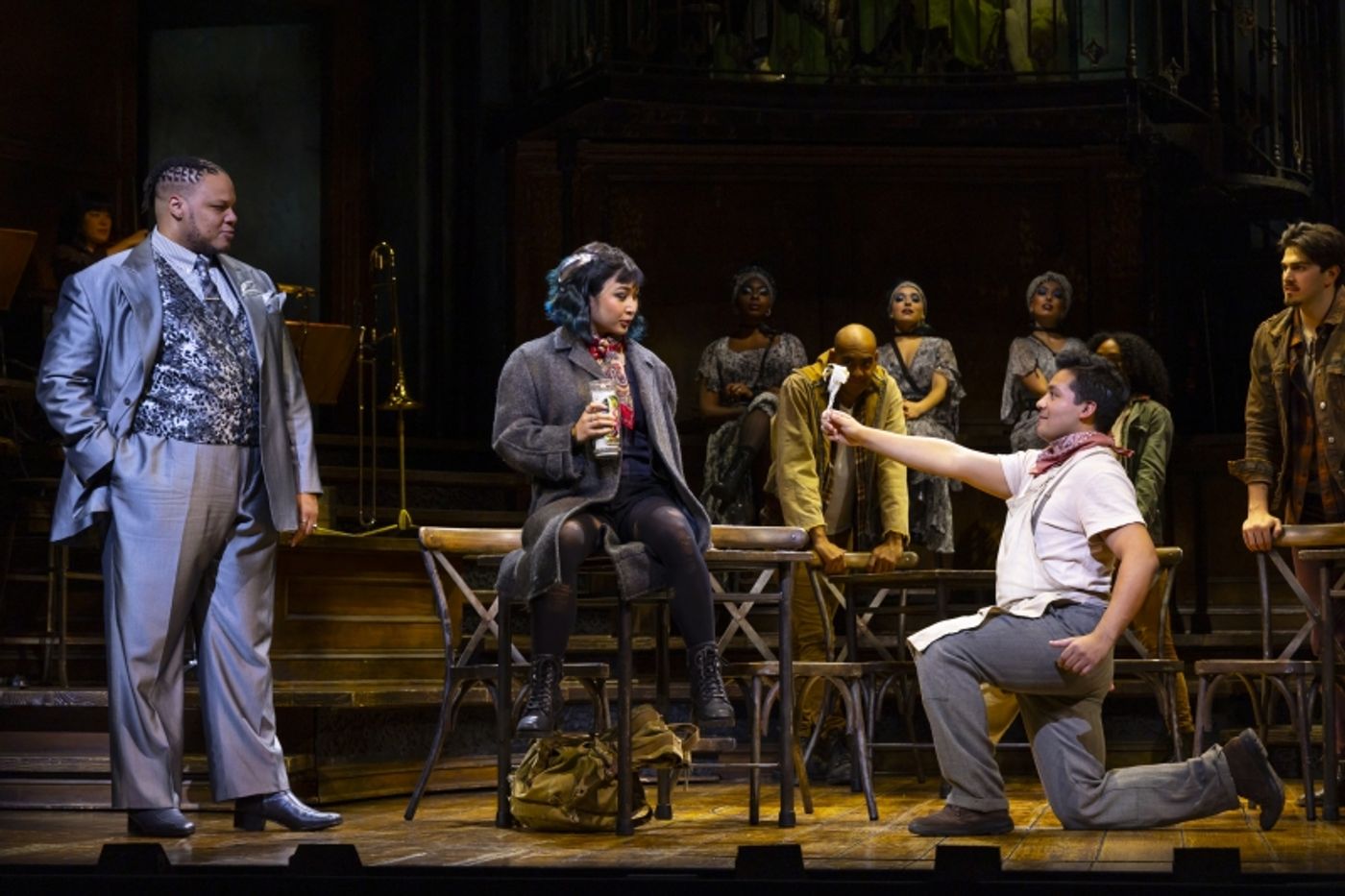
You’ve been part of the DACA program since its inception. How has the program changed your life, and what challenges have you faced with its uncertainties?
I feel very blessed and understand my privilege of being able to be on DACA. I know there are many people unable to apply to be on it anymore, and so I feel very fortunate to have DACA. It gave me a lot of hope when I first received it at 13 years old. It offered hope for the future, that things would work out, that I would be able to go to college, drive, and not be left behind by my friends, classmates, and even my sisters. It has changed my life in many positive ways. Now, the challenges have become more apparent. As I've mentioned before, you have to renew every two years. This constant reminder that you don't truly belong here comes along with legal and application fees every two years, which are expensive. And with the economy, things are not getting cheaper.
But I think this says a lot about people on DACA. We want to work. Contrary to the rhetoric some older generations use about young people not wanting to work, there are 600,000 people on the DACA program that continually prove their willingness to work. We literally pay money to prove that. So, really, the uncertainty is the worst part of it, not knowing what's going to happen, when it might be taken away, and not having a clear path to citizenship."
The renewal process for DACA has become more prolonged and uncertain recently. How has this affected your daily life, aside from the current situation with Hadestown.
It has affected every facet of my life, long before the renewal process backup started happening. Growing up, I lived in constant fear: fear concerning my parents' safety and their situation, fear for my own safety, and the anxiety that comes from not knowing if one day, getting pulled over could lead to people not believing I'm part of this program.
My biggest fear is not being here anymore, which has created a lot of anxiety within me. I'm a strong advocate for mental health, especially among men of color. About a year and a half ago, I was diagnosed with an anxiety disorder. I always thought it was ADHD, but it turned out to be severe anxiety. I attribute much of this to being a Dreamer and undocumented. The uncertainty and fear are overwhelming. Even now, speaking out, I feel a sense of shame for not having done so sooner, but the fear is paralyzing.
This fear and uncertainty affect everything. Not having DACA, and all the uncertainty that comes with it, creates immense anxiety within me. Every two years, when it's time to renew, even though I know it's going to be okay, the anxiety is still overwhelming. It bleeds into every aspect of my life.
In Hadestown, there's a song called 'Papers' that resonates deeply with your personal story. How did performing this song night after night affect you emotionally?
Oh, man. Papers really hits hard. Up until this point in the show, it can be pretty vague about Orpheus's arc, at least that's what I thought when I first saw the show. And it wasn't until 'Papers' that I heard those words, 'You're on the wrong side of the fence. You're not from around here. These are working people.' It really struck me, what the story was about. I really do think what's so special about the show is that it means something different to everybody. But to me, it was so apparent that the song called 'Papers,' which is something you always say in Spanish, '¿Tienes tus papeles? Do you have your papers? Do you have your documentation?' This song is literally called that.
And then all of these things that Hades is saying to Orpheus about not belonging on this side of the fence, of the wall, is just so deeply specific. And so, doing this for the first time was really hard. I was very nervous, but I got over it pretty quickly. But the more and more I did it, the more it started to sting. Eventually, it starts to almost scab over like a scar, and it got easier to do. But I never want it to not sting, if that makes sense, because I really do feel like it adds to my performance.
The first time that I came back from a layoff, when I found out about these backups and that I would potentially have my last show as Orpheus on a random night, on a random Wednesday, the first time I heard 'Papers' after that was the toughest time I've had. I couldn't even get through the show. I couldn't sing through all of 'If It's True' because those words are so deeply personal and specific to my situation. I mean, the truth hurts so badly. As I said before, I'm a big advocate for mental health, so it does affect me emotionally, but I've learned to redirect it in different ways.
And so, the story ends in a very bittersweet way, and so there's always hope.

The current political climate and legislative deadlock on immigration reform have left many Dreamers in limbo. What actions do you think need to be taken to address the needs of Dreamers effectively?
This is where I really reach out to people that support me and have a lot to learn myself. People need to speak up, everyone. It doesn't matter who you are. As a dreamer, we all want to be here, we all want to work. People need to share these petitions, which I know might seem odd, but every little thing helps. And it's not just that; we need other immigrants, family members, and the community, including the theater community, to speak up with us, for us.
In terms of what legislators can do, like I've said before, you have 600,000 people who want to be here, who have been here their entire lives, who know no other home than the United States. We pay our taxes, just like everyone else. We don't vote; we have no say, but we still want to be here.
I get so heated because I don't understand why we are used as bargaining chips, used as political pawns every election cycle. 'We're going to do this. We're going to get rid of it. No, we're going to do something for them. We're going to give them a pathway to citizenship.' To me and to so many other people, just look at the comments on that post, from people from all different walks of life. Who is it helping to not give us a pathway to citizenship, to fully immerse us into American society and to become citizens?
Dreamers are so much less likely to commit crimes. We are more likely to graduate from high school. Because we want to be here so badly.
What has the support from the Hadestown producers and cast meant to you during this challenging time?
It means the absolute world. My cast members, the crew members, the band members—every single person from the Hadestown family — I've felt nothing but love, care, and support. They are truly golden examples of who you want to work with, who you want to clock in with every single day, who you want to see every day, who you want to travel with. Our stage managers, our company managers, every single person—their support means everything, truly. And at the same time, the producers are fighting tooth and nail for me, and I really do feel it in my heart. And that is something you know, that you grow up and you know that things are a business, the world is run by money.
But sometimes, in those rare instances, people really do care, and they really fight for you. To know that for the producers, it's not business and money that's the first thing on their minds. Quite the opposite, they really do care. It's so special. I hope that everyone gets to experience being a part of a company that loves them and will stand behind them like my Hadestown family has.
Finally, what message do you want to leave with others who may be going through similar experiences as a Dreamer or undocumented immigrant in the U.S.?
You are not alone. I thought that I was alone in this for so long. I thought that only I had this experience, or that only a few of us had this experience, but what I've learned in the past week is that so many people are in the same boat, and you may not even know it. Having that in your heart, knowing that you are really not alone, will take you so far and will help you keep fighting. Another thing to say, which might sound cliché but I'm going to say it anyway, is about the end of Hadestown. The show doesn't go how we want it to go. We don't have that happy ending, but we keep going, and that's what it's like being a dreamer. Every single day, you hope and you pray that our path is there, and every night we go to bed, nothing has changed. But we get to wake up the next day and we keep going, we keep hoping, and we keep dreaming.
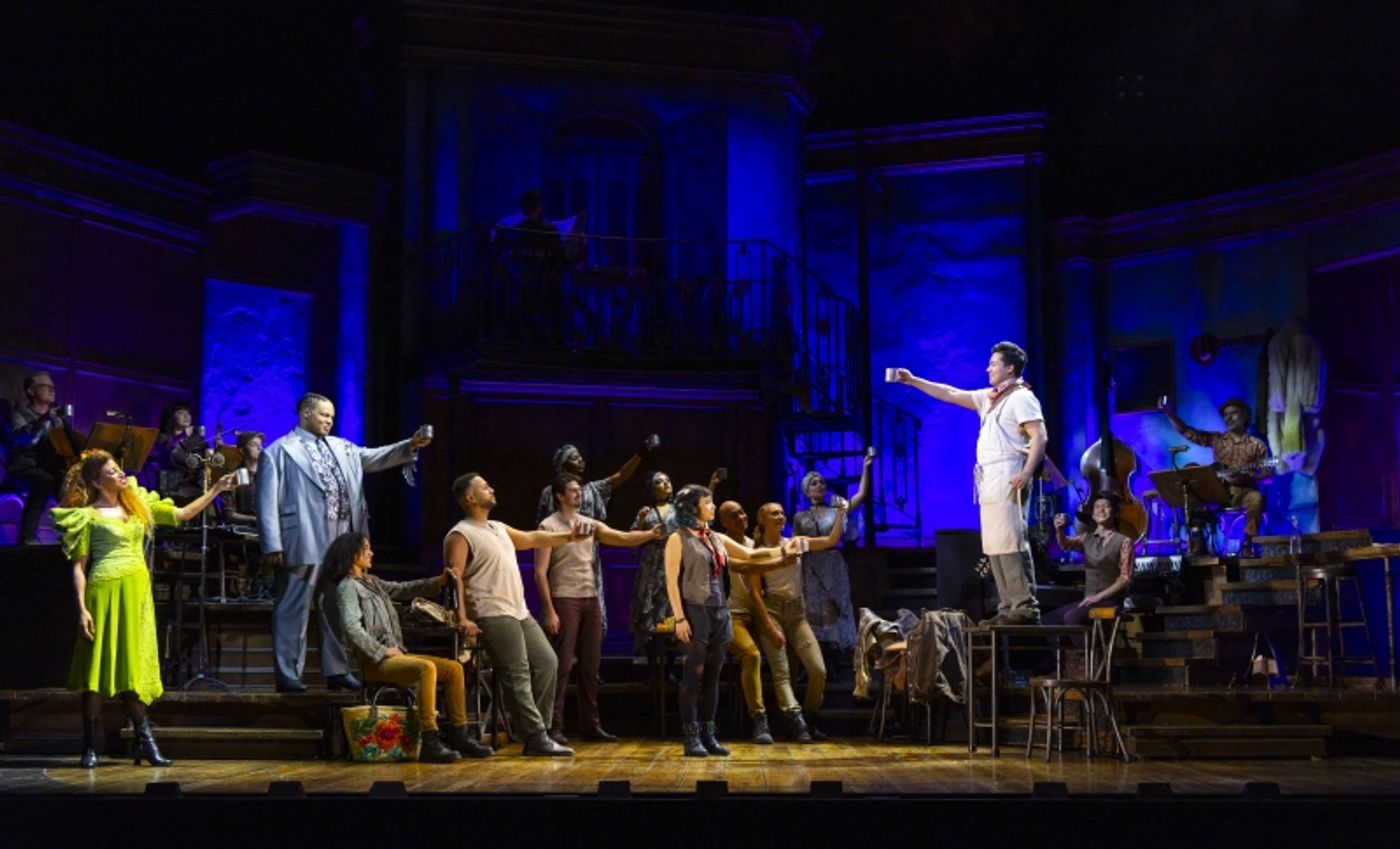
In a statement about the renewal being approved Rogriguez later wrote to BroadwayWorld:
Recently, I was faced with the painful reality of having to halt my performances as Orpheus in the Hadestown tour due to delays in renewing my DACA status, which expired March 13. This saddened me deeply as I had to step away from a role and community that is dear to me.
Every two years, I face the formidable task of obtaining permission to continue living, working, and contributing to the only home I remember. Having moved to the United States at age two, there is nowhere else I would rather be. Throughout my life, I have never broken the law. I graduated as valedictorian of my high school class and pursued higher education. The Situation (i) am in only reinforces the harsh reality of being treated as a second-class citizen despite continuous efforts to positively contribute to this society. It is disheartening to bear this constant reminder.
In Hadestown, I have always felt a strong connection to Orpheus. His character description as a dreamer and his experiences throughout the show reflect my own experience as a DREAMer. The message conveyed at the end of the show that ‘we’re going to sing it anyway’ resonates with me deeply. It is a reminder to try and keep moving forward despite the challenges we face.
I’m relieved to say that, as of April 4, my DACA renewal was finally processed and approved. I am thankful to all who voiced their support, went to bat for me, and reached out just to tell me they had my back. Even though my application was resolved, there are still 600,000 with similar stories who are in the same predicament. I’m going to continue to fight for a pathway to citizenship and urge everybody to make their voices be heard – to your communities, friends, and politicians. I know firsthand how powerful the fear of speaking out can be, but we must continue to fight.
Photos: Hadesdown Tour Photos by T Charles Erickson.




